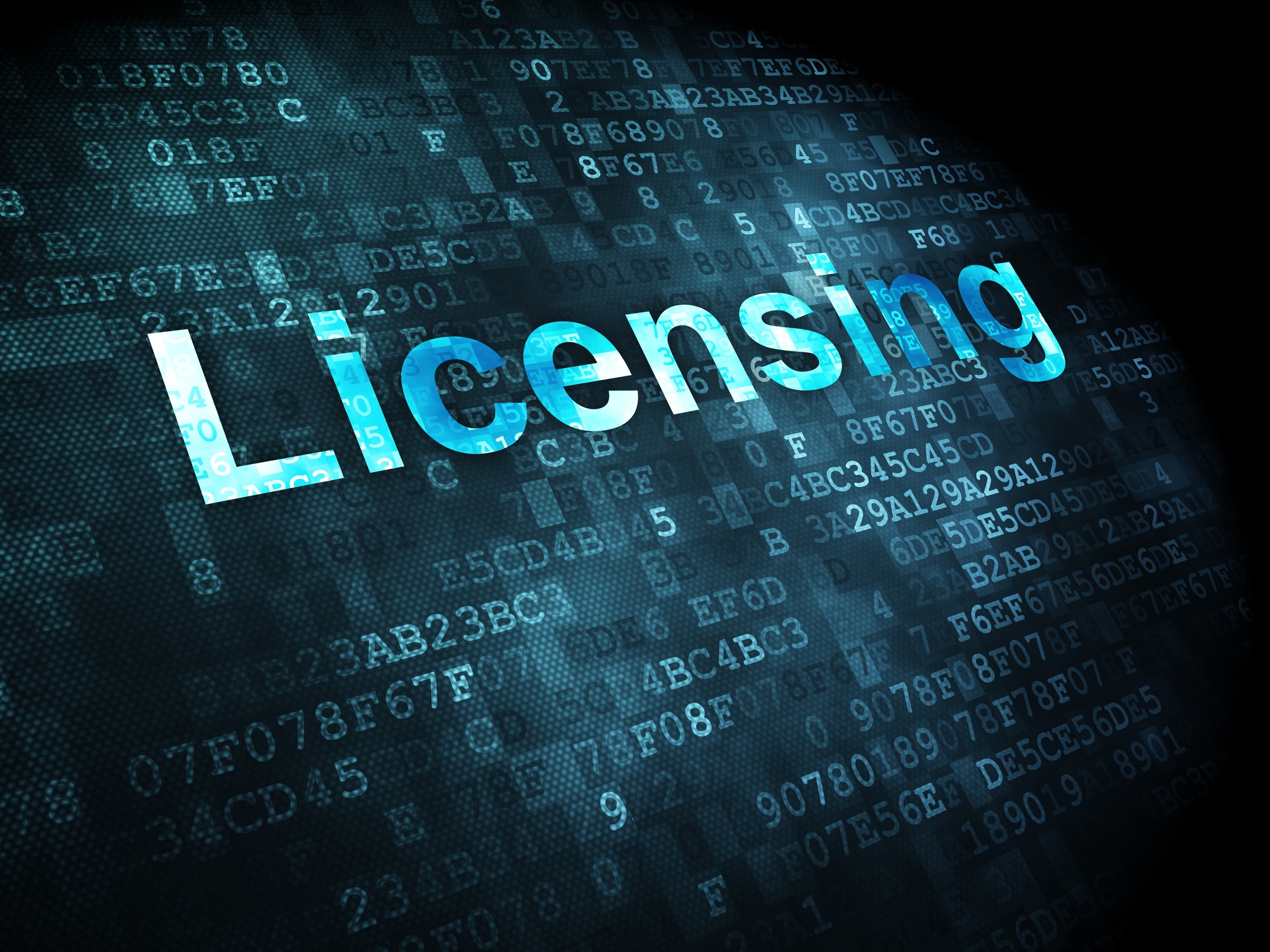Licensing And Insurance

In the world of business and entrepreneurship, understanding the intricacies of licensing and insurance is crucial for success and compliance. These essential legal and financial aspects form the backbone of any legitimate operation, ensuring that businesses operate within the boundaries of the law and protect themselves and their clients from potential risks and liabilities. This comprehensive guide aims to delve into the complex world of licensing and insurance, providing an expert-level analysis of their importance, the processes involved, and the potential implications for businesses of all sizes and industries.
Unraveling the Complexity of Licensing

Licensing is a fundamental aspect of regulatory compliance, governing the legal operation of businesses across various sectors. It acts as a safeguard, ensuring that businesses meet the necessary standards and adhere to specific regulations tailored to their industry. For instance, a construction company would require a different set of licenses compared to a software development firm, highlighting the customized nature of this process.
The Licensing Journey: A Step-by-Step Guide
Obtaining the right licenses can be a complex process, but breaking it down into manageable steps can make it more accessible. Here’s a simplified overview:
- Identify Licensing Requirements: Start by researching the specific licenses needed for your business type and location. Each industry and jurisdiction may have unique requirements, so a thorough understanding is essential.
- Prepare Necessary Documentation: Gather all the required documents, which could include business registration certificates, financial records, and professional qualifications. Ensure these are up-to-date and accurate.
- Application Process: Submit your application to the relevant licensing authority. This often involves filling out detailed forms and providing supporting documentation. Be prepared for potential delays and additional requests for information.
- Inspection and Approval: Depending on the nature of your business, an inspection may be required to ensure compliance with health, safety, and other relevant standards. Once approved, you will receive your license, allowing you to legally operate.
- Renewal and Compliance: Licensing is not a one-time process. Most licenses require periodic renewal, often annually or biennially. Ensure you stay up-to-date with renewal deadlines and any changes in licensing requirements.
| Industry | Key Licensing Requirements |
|---|---|
| Healthcare | State-specific medical licenses, malpractice insurance, and facility accreditations. |
| Construction | General contractor licenses, building permits, and occupational safety certifications. |
| Food Service | Health department permits, food safety certifications, and alcohol licenses (if applicable) |
| Retail | Business licenses, sales tax permits, and product safety certifications. |

Insurance: Shielding Businesses from Uncertainty

Insurance is an indispensable tool for businesses, providing a safety net against unforeseen events and liabilities. It offers financial protection, peace of mind, and a mechanism to manage risks effectively. From covering property damage to protecting against lawsuits, insurance is a cornerstone of sound business strategy.
The Spectrum of Insurance Coverage
The world of insurance is vast, offering a wide array of policies tailored to specific business needs. Here are some common types of insurance coverage:
- Property Insurance: Protects against physical damage or loss of business property, including buildings, equipment, and inventory.
- Liability Insurance: Covers legal costs and damages if your business is sued for injury or property damage caused to a third party.
- Professional Liability Insurance (Errors and Omissions): Essential for professionals like consultants, architects, and financial advisors. It provides coverage for negligence claims resulting from errors or omissions in professional services.
- Workers' Compensation Insurance: A legal requirement in many jurisdictions, this insurance covers medical expenses and lost wages for employees injured on the job.
- Business Interruption Insurance: Provides financial support if your business is forced to shut down temporarily due to a covered event, such as a natural disaster or fire.
- Cyber Insurance: In today's digital age, this insurance is crucial. It protects against financial losses and liability arising from cyber attacks, data breaches, and other online risks.
Tailoring Insurance to Your Business
The key to effective insurance coverage is understanding your business’s unique risks and tailoring your policies accordingly. This may involve a combination of different types of insurance, each designed to address specific vulnerabilities. For instance, a tech startup might prioritize cyber insurance, while a construction company would focus on liability and workers’ compensation coverage.
Navigating the Intersection of Licensing and Insurance
Licensing and insurance are interconnected aspects of business management, and understanding their synergy is crucial for long-term success. Licensing ensures that businesses operate within legal boundaries, while insurance provides the financial protection necessary to manage the risks inherent in these operations.
The Impact of Licensing on Insurance
The type of licenses a business holds can influence the insurance coverage it requires. For example, a licensed healthcare provider may need malpractice insurance, while a licensed contractor may require specific liability coverage for the work they perform. Insurance providers often require proof of licensing to ensure compliance and to assess the potential risks associated with a business.
Insurance as a Tool for Licensing Compliance
Conversely, insurance can play a pivotal role in maintaining licensing compliance. Many licenses come with specific insurance requirements, such as professional liability insurance for certain professions. Ensuring that your business maintains the necessary insurance coverage can be a critical component of staying compliant with licensing regulations.
Future Implications and Industry Trends
As the business landscape continues to evolve, so too do the requirements for licensing and insurance. Keeping abreast of these changes is essential for businesses to remain competitive and compliant.
Emerging Trends in Licensing
The rise of new technologies and business models is leading to the development of new licensing frameworks. For instance, the emergence of ride-sharing services has prompted the creation of new licensing categories for drivers. Similarly, the growth of e-commerce has led to changes in licensing requirements for online retailers, especially concerning sales tax and product safety.
Insurance Innovations and Challenges
The insurance industry is also experiencing significant changes, driven by technological advancements and shifting risk landscapes. The increasing frequency and severity of natural disasters, for instance, are leading to a reevaluation of insurance coverage and rates in certain areas. Additionally, the rise of cyber risks has spurred the development of new insurance products, such as cyber liability insurance, to address these emerging threats.
Conclusion

Licensing and insurance are critical aspects of any business, offering both legal compliance and financial protection. By understanding the intricate processes and interconnected nature of these systems, businesses can navigate the complex regulatory and risk management landscapes with confidence. As the business world continues to evolve, staying informed and adaptable will be key to long-term success.
What happens if a business operates without the required licenses?
+Operating without the necessary licenses can result in significant legal repercussions. Businesses may face fines, penalties, and even legal action. In some cases, unlicensed operations can lead to the revocation of business permits or even criminal charges. It’s crucial to obtain and maintain the appropriate licenses to avoid these risks.
How often should businesses review their insurance coverage?
+Insurance needs can change over time as businesses evolve and face new risks. It’s recommended to review your insurance coverage annually or whenever there are significant changes to your business, such as expansion, relocation, or a change in business activities. Regular reviews ensure that your coverage remains adequate and up-to-date.
Can insurance providers deny claims if the business is not properly licensed?
+Yes, insurance providers often have clauses in their policies that allow them to deny claims if the business is not properly licensed. This is particularly common for professional liability and liability insurance policies. It’s essential to maintain licensing compliance to ensure that your insurance coverage remains valid.



